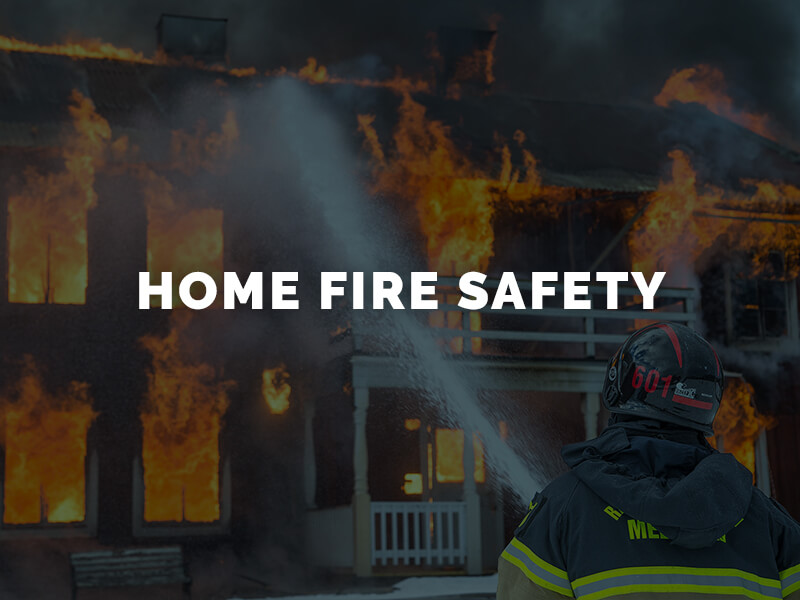House fires cause thousands of injuries and deaths in the U.S. each year. In 2017, the U.S. Fire Administration reported 1,319,500 house fires, 14,670 injuries and 3,400 deaths, as well as over $23 billion in related property losses.
House fires are usually preventable. Homeowner negligence and carelessness can cause fires. Learning the basics of home fire safety could save your life. It could also help you avoid the stress and expenses of filing a property loss claim. You may have the power to prevent and safely respond to home fires with proper preparation.

The foundation of home fire safety is learning how to prevent a house fire. Prevention should be where you and your family focus most of your efforts. While it is also important to learn how to safely respond to a fire, preventing one can save you from the tragedy of your home catching on fire to begin with. Basic home fire safety takes implementing both preventive and responsive measures.
Basic home fire safety can not only prevent a fire but also equip you to deal with one. Being prepared can make all the difference if your home catches aflame. Preparation can help you and your family remain calm and in control even during an event such as a house fire. You and your children should know exactly how to respond and where to exit after smoke alarms alert you to a fire in the home.
If you detect a fire in your home, the three keys to remember are get out, stay out and call 911. Stay low as you escape the home – heavy smoke will collect on the ceiling first. Feel a doorknob for heat on the other side before opening the door. If you cannot get to your loved ones, exit the home instead and call 911.
The American Red Cross recommends creating a fire escape plan that will allow you to leave your house in under two minutes. Within as little as two minutes of a fire starting in your home, it could spread to the point of blocking your exit or causing smoke inhalation injuries. Have your escape route memorized for the most effective exit in a fire. Exit your home, get a safe distance away and call 911. Do not go back inside the home for anyone or anything.
The main cause of home fires according to the U.S. Fire Administration is cooking (51.6%). Cooking and kitchen fires can occur due to improper cooking supervision, children in the kitchen, outdated appliances, and dangerous or reckless cooking practices. The other most common causes of house fires are heating equipment (9.1%), unintentional or careless mistakes (7.1%), and electrical malfunctions (6.5%). Less common causes include open flames, arson, appliances, smoking, exposure and natural causes (e.g. lightning).
It may be impossible to fully fireproof your home, but you can improve its overall fire safety to reduce the odds of a fire starting. Make your landscape fire-resistant if you live in a wildfire zone by using gravel and concrete instead of grass. Use fireproof materials for your home’s siding and roof. Frame your windows with metal, not wood. Install safety plugs in electrical outlets and avoid overloading circuits. Replace cracked, frayed or damaged cords. Reduce clutter and prevent fire hazards such as obstacles in corridors. Have a professional inspect the appliances of your home regularly. A few basic fire safety tips could prevent a house fire and serious burn injuries.